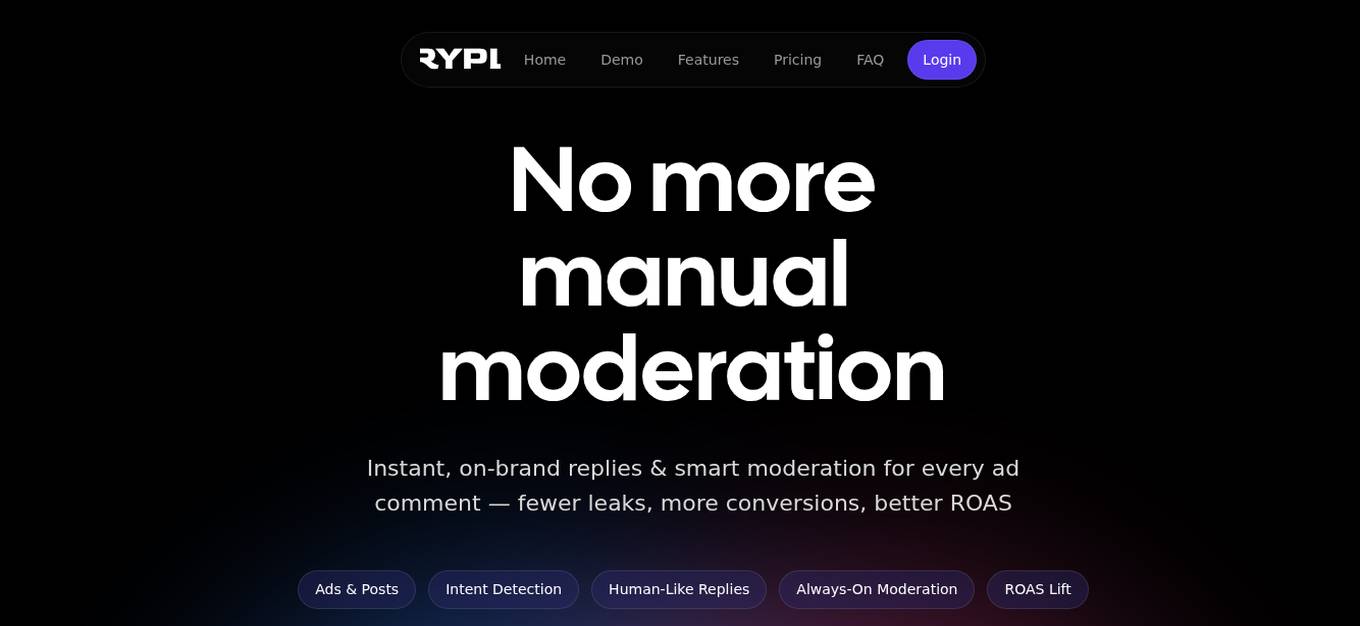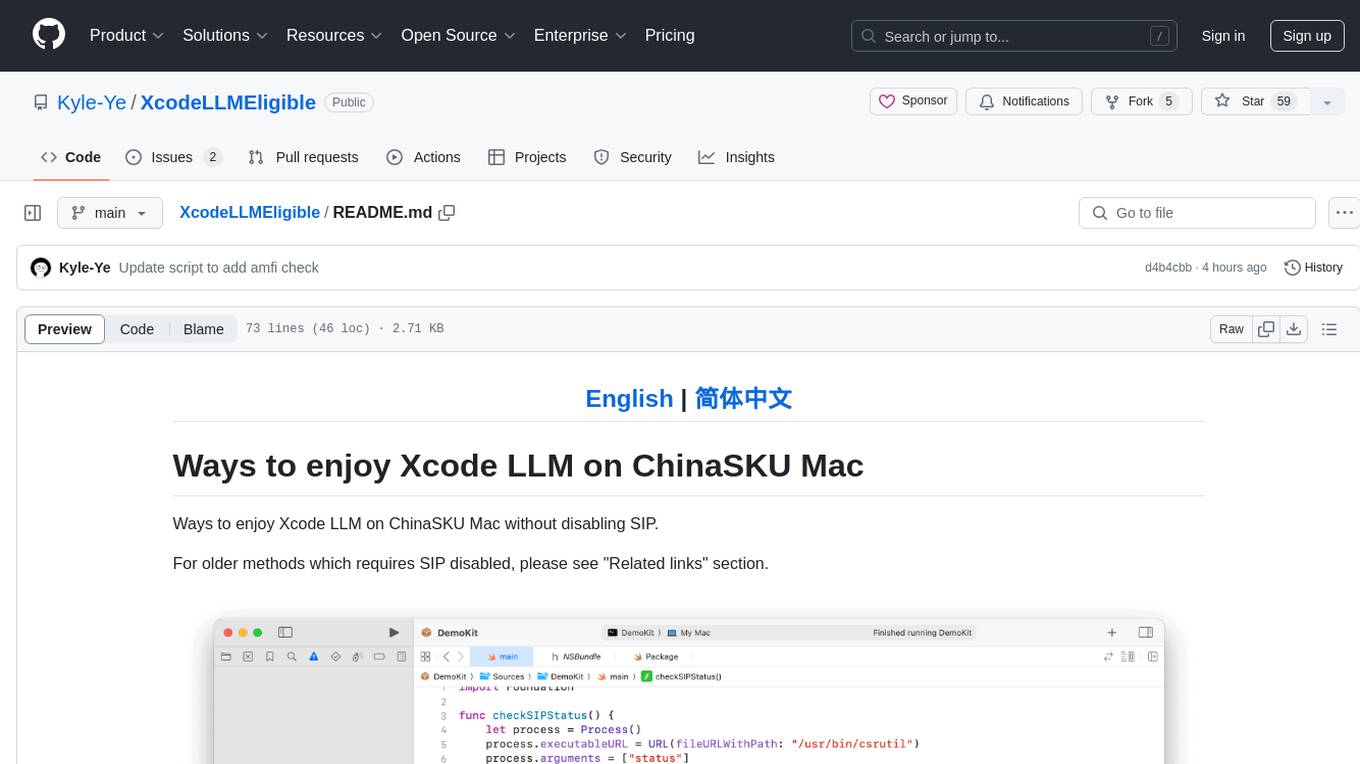Best AI tools for< Override Eligibility Service >
1 - AI tool Sites

RYPL
RYPL is an AI Facebook Ad Comment Management & Auto-Reply Tool that offers instant, on-brand replies and smart moderation for every ad comment. It helps reduce leaks, increase conversions, and improve Return on Ad Spend (ROAS). The tool provides features such as Ads & Posts Intent Detection, Human-Like Replies, Always-On Moderation, and ROAS Lift. RYPL is designed to handle every comment, moderate leads instantly, and provide personalized replies in under 10 seconds. Users can train their AI, override actions, and benefit from features like Conversation Memory, Multi-Language support, and Fast Moderation. RYPL offers different pricing plans catering to solopreneurs, teams, and agencies, with a 7-day free trial included in every plan.
1 - Open Source AI Tools

XcodeLLMEligible
XcodeLLMEligible is a project that provides ways to enjoy Xcode LLM on ChinaSKU Mac without disabling SIP. It offers methods for script execution and manual execution, allowing users to override eligibility service features. The project is for learning and research purposes only, and users are responsible for compliance with applicable laws. The author disclaims any responsibility for consequences arising from the use of the project.